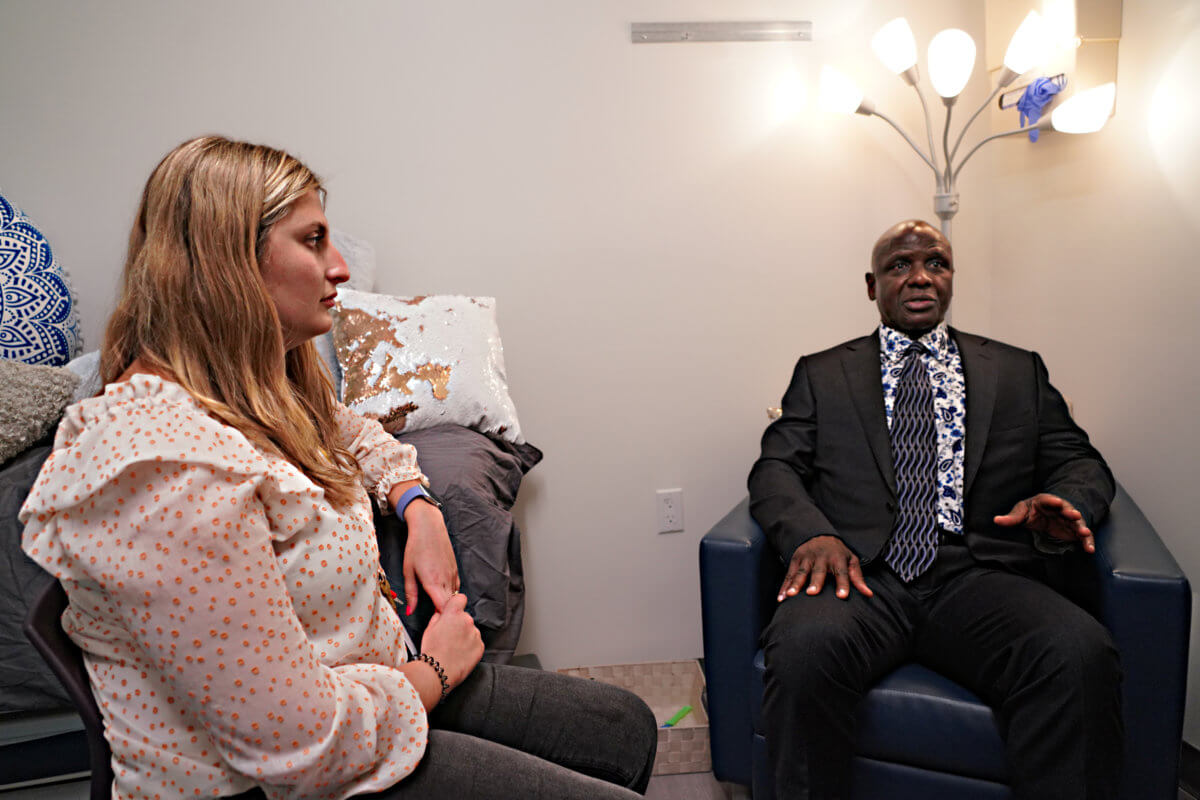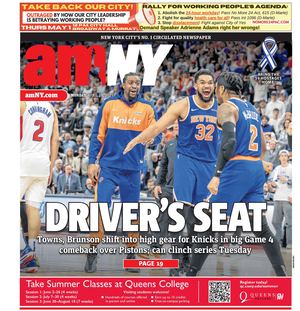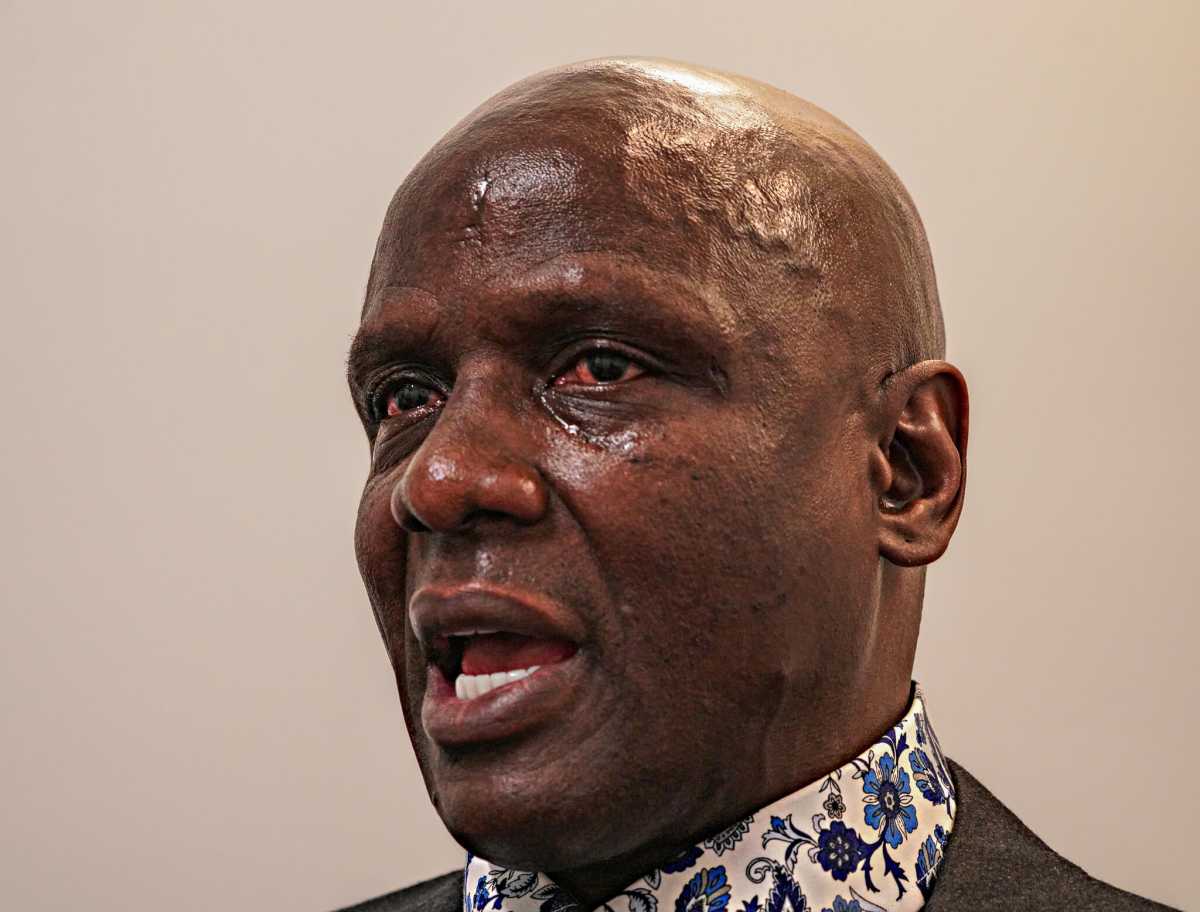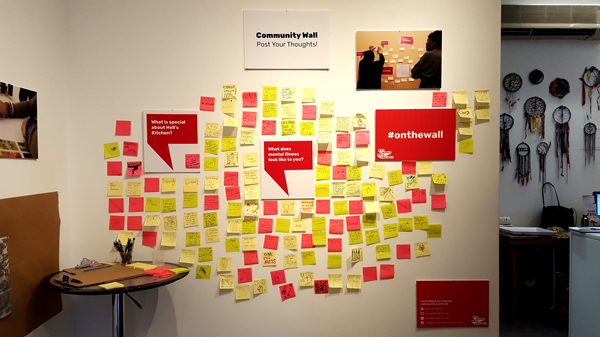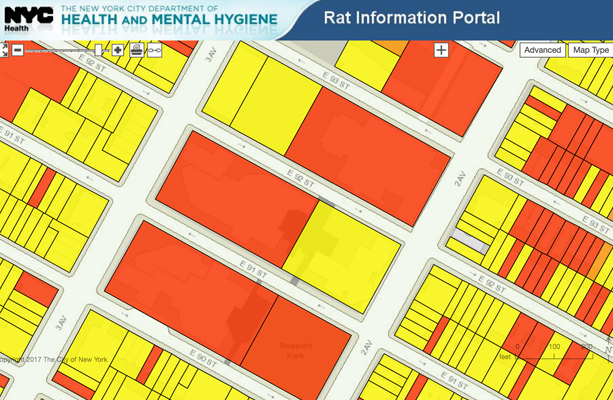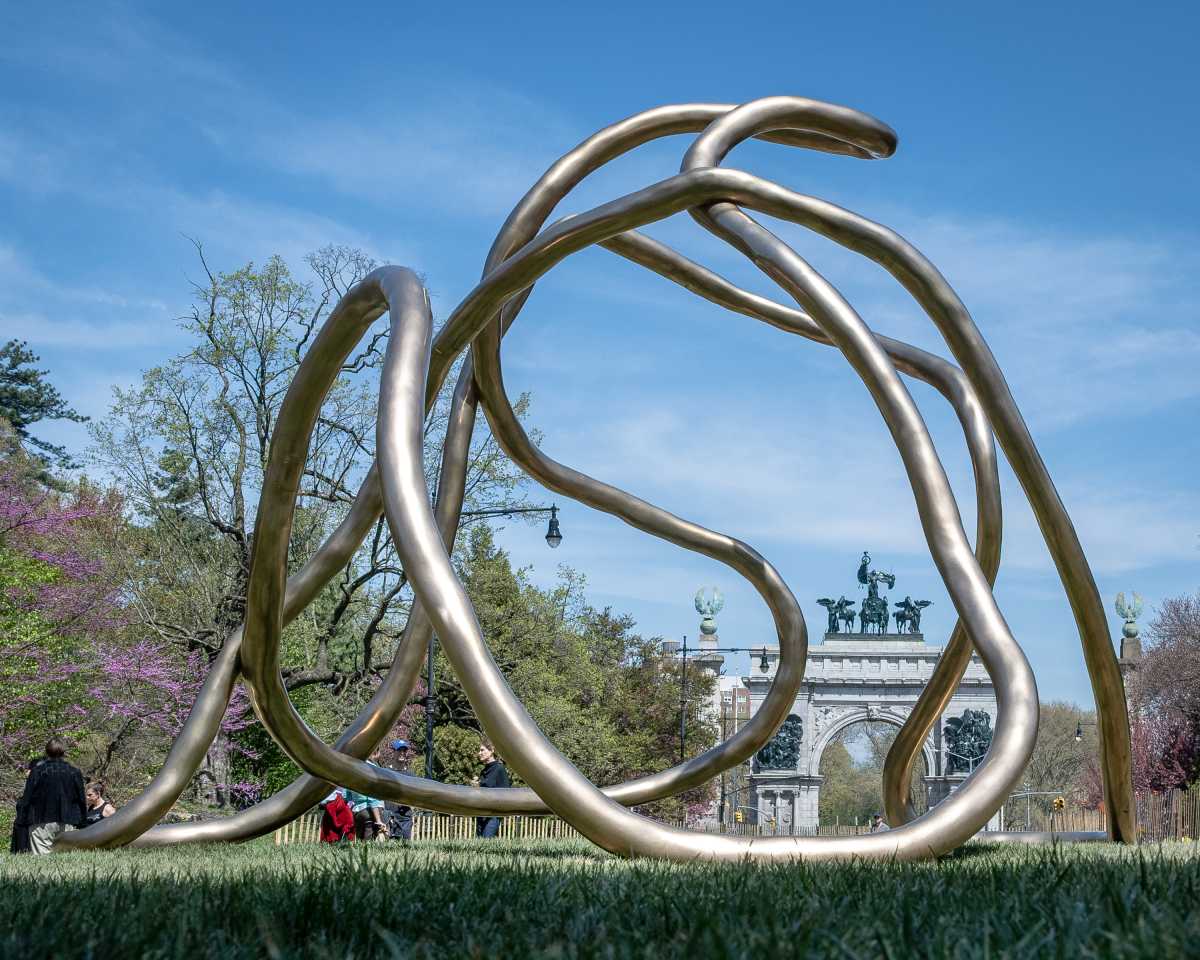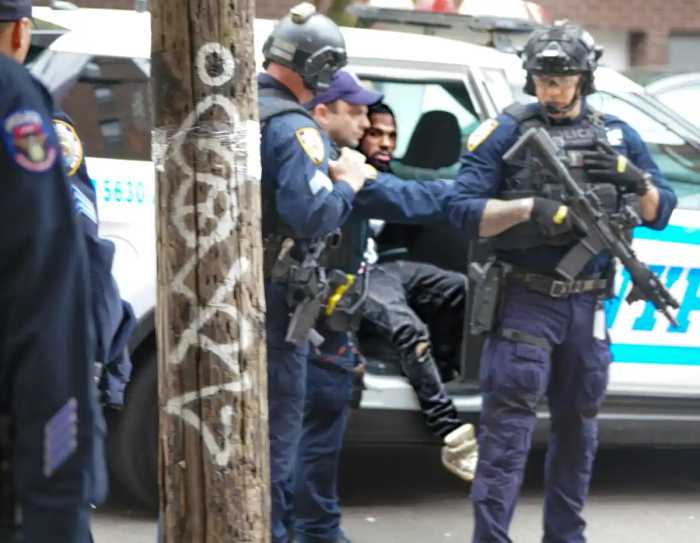Raymond Bird broke down in tears inside an East Harlem emergency stabilization center, unleashing memories of childhood abuse, suicidal thoughts, and a long battle with addiction in a deluge of emotion.
Bird arrived at the Project Renewal Support and Connection Center, located at 179 East 116th St., just over seven months ago after admitting he considered serious self-harm. Coming from life on the streets with extensive substance abuse issues, the Bird of May 2022 is vastly different to that same man last fall.
But in order to understand his full, miraculous journey, it’s important to understand the facility that helped him recover.
The East Harlem center — funded by the NYC Department of Health and Mental Hygiene — is designed to accept 24/7 referrals and house those experiencing homelessness, mental illness, criminal history, and substance abuse disorder. Although Project Renewal Support and Connection Center is designed as a short-term solution — admitting guests for 5-night stay periods, even though they can return for additional stays—the facility also prides itself on offering significant aftercare, which includes mental health and substance abuse services.
“Once people come to the center, they are greeted with open arms. The center is richly staffed with nursing, other medical care, substance use treatment, mental health treatment, peer support. Basic social services are also provided here. People are free to come and go. Oftentimes when they come, they’ll see how beautiful it is, how welcoming and warm the staff is. And once they leave the facility, they’re always able to come back,” said Michael McCray, the executive deputy commissioner for mental hygiene with the New York City Department of Health and Mental Hygiene.
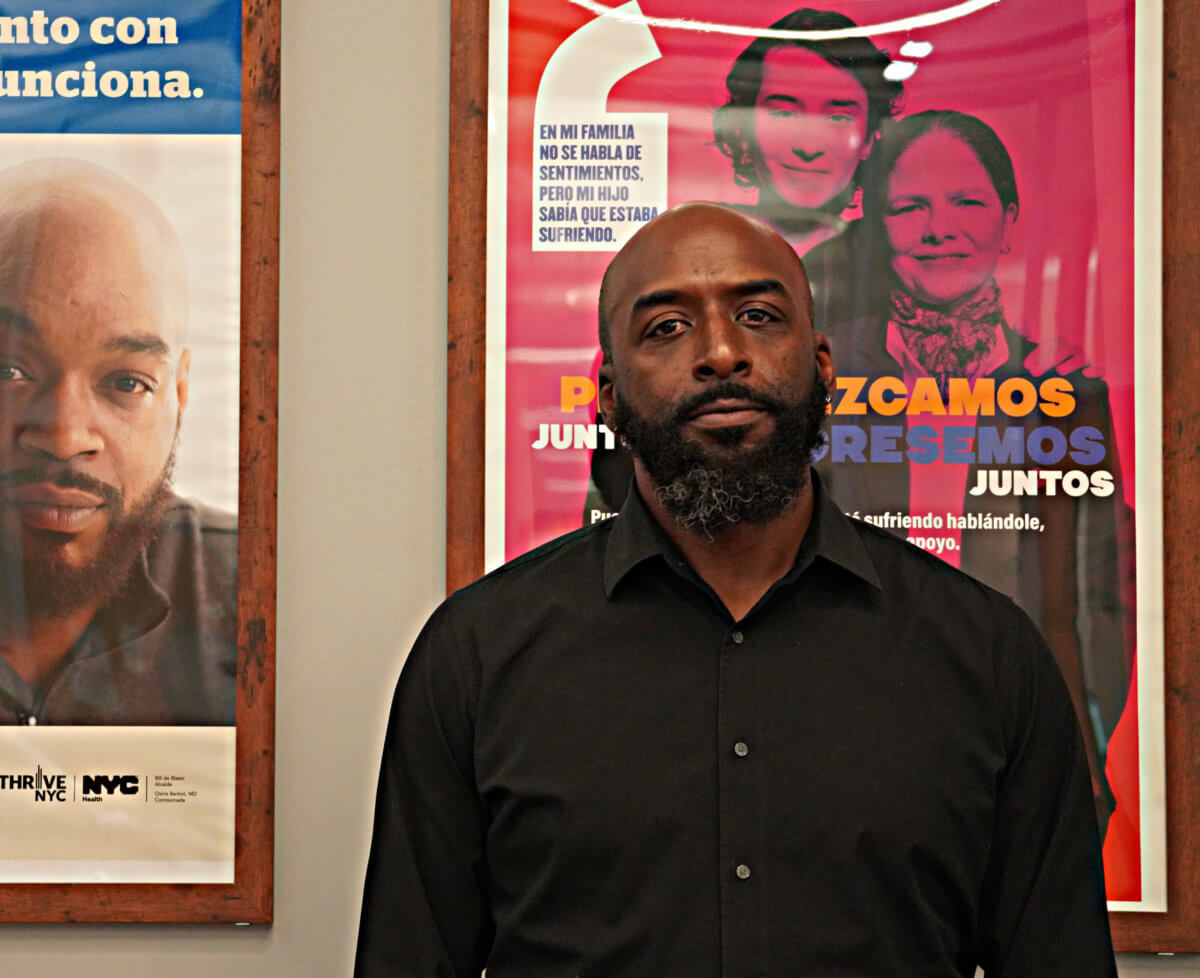
The facility distinguishes itself from other shelters by refusing to employ metal detectors (something the undomiciled say makes them feel akin to prisoners) while also storing any belongings before returning them after the five-night stay.
This judgment-free zone is exactly what Bird needed during a time he needed it most. Bird explained that the differences between his care at this center and a traditional shelter was and continues to be monumental.
“Being in a shelter dealing with the staff — the security, case managers, supervisors — everybody seems to have a nasty attitude,” Bird said. “I’m saying they’re not really working for the people. You know, but here at the Connection Center, I believe that they are working for us.”
In fact, that is exactly what Occupational Therapist Julie Abraham told Bird when he first arrived — that she works for him.
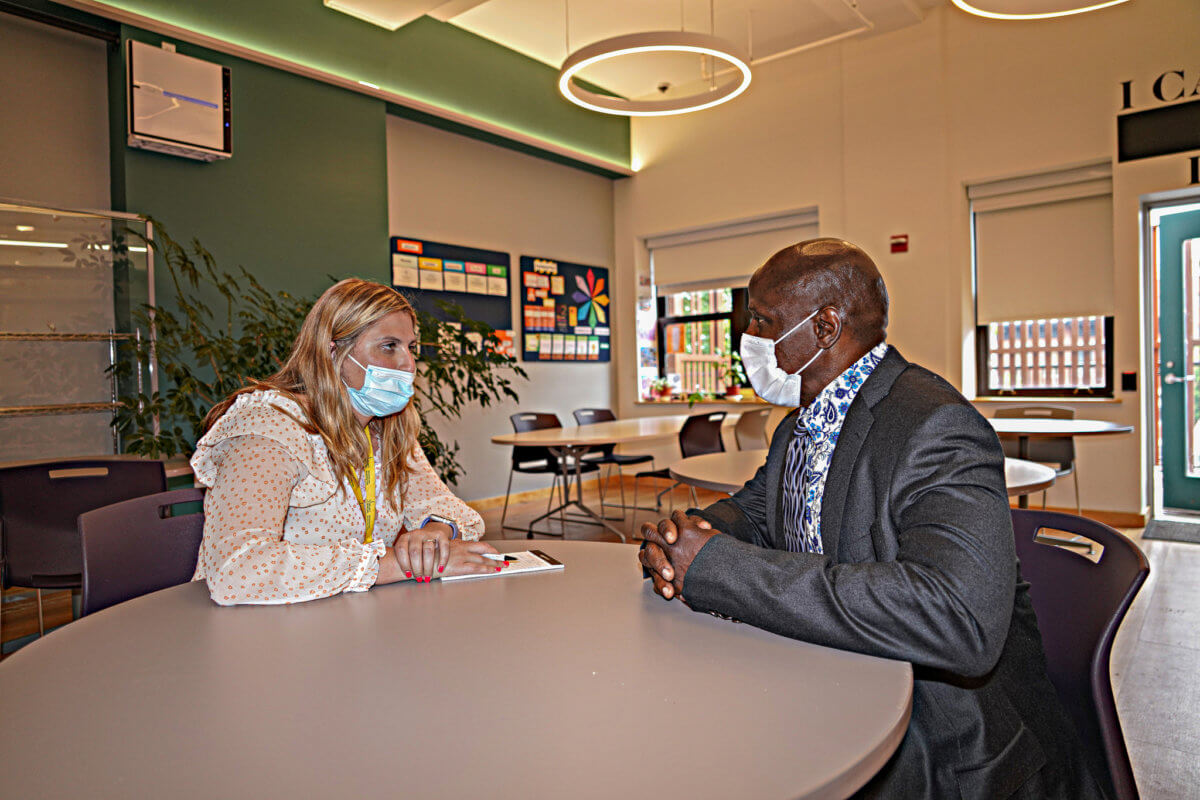
“No one ever told me that, no one ever told me that. I have never been surrounded with so many great people, never. And this is the help that I’ve been looking for my entire life,” Bird said.
Despite finally finding a support group, the odyssey to sobriety was far from easy. Bird has a history of drug dependency dating back three decades, which is coupled with distressing childhood trauma. Suffering abuse at the hands of his mother since a tender age, it took all of Bird’s strength and the encouragement of staff members like Abraham to help break the cycle. Still, it all began with a cry for help, with Bird admitting that he found himself in the deepest, darkest of emotional holes and he yearned to climb out.
“I told them: I’m not just here to walk in and out of the center. I said I really need help, I really want help, and I want help from you guys,” Bird explained.
That moment set off a seven-month journey that has seen Bird not only gain sobriety and transitional housing, but he also finds himself sharing his success story in group meetings with peers in hopes of inspiring them to follow in his footsteps. Still, despite all that he has achieved, the pain still leaves a substantial weight on his shoulders.
Bird loves running as part of his clean lifestyle and yearns to compete in the city’s various marathons. While jogging, the opportunity arose to reflect on both the past and the future.
“We ran back across the George Washington Bridge all the way down to Chelsea Piers, and then back up to 114th Street and Riverside Drive where I was living, you know, and while I was out there, using drugs, being caught in that grip of using I would always go to Riverside Drive and look at the George Washington Bridge…,” it was this moment that Bird broke down. Tears gushed from his eyes at the recollection.
“I knew that if I keep trying and if I keep, you know, chipping at this that I was going to stop using. I knew I had to stop using because I wanted to run again. Ms. Abraham, she helped me with all this, she helped me with all of this. She’s been a really big inspiration in my life getting me back on my feet,” Bird said, his voice cracking and tears continuing to flow.
In just over half a year, Bird went from wanting to end his life to beginning a fresh start. With the future brimming with possibilities, the now sober, physically fit Bird told amNewYork Metro that he would like to return to school and gain an education, adding: “Sky’s the limit.”
Abraham, who has shared the ride alongside Bird since his arrival, said that she is inspired by her friend.
“He’s really the inspiration for me to be able to be part of this and to be able to help somebody who is so deserving,” Abraham said.
